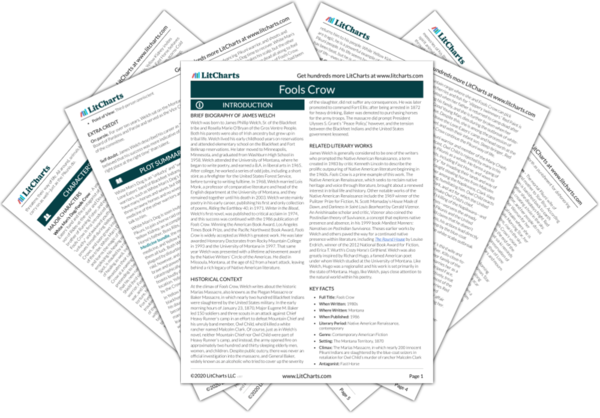Yellow Kidney is troubled by Fast Horse’s dream because he is likewise troubled by Fast Horse. Yellow Kidney doesn’t trust him, and he knows that he should turn the party back; however, Yellow Kidney is determined to raid the Crows’ camp and increase his own material wealth. Ultimately, the risks do not outweigh the benefits, and it is in this way that Welch is critical of war.
